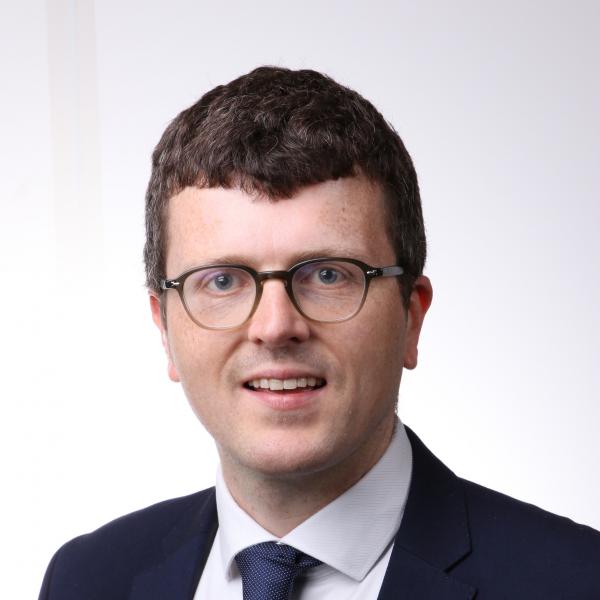Dr David O'Reilly's Cancer Researcher Story
“Caring for patients with cancer is a privilege but unfortunately we are not always able to deliver as effective treatments as we would like. This has inspired me to work in cancer research with the aim of improving outcomes.”

Dr David O’Reilly, 33, from Co. Wexford has worked in oncology as a doctor since 2019. He is currently working on an Irish Cancer Society-funded research project looking at using liquid biopsies to improve outcomes for patients with non-small cell lung cancer.
A Clinical Research Fellow at the Beaumont RCSI Cancer Centre, Dr O’Reilly recently won the Young Investigator Award at ASCO (American Society of Clinical Oncology) for his work investigating if exhaled breath liquid biopsy can be used to predict early progression on chemo-immunotherapy for patients with advanced non-small cell lung cancer.
Dr O’Reilly’s research is already showing promising results. In June of this year, his work, as part of a team assessing the clinical benefit and cost of plasma-first next-generation sequencing in patients with newly diagnosed advanced non-small cell lung cancer in Ireland, was published in the European Journal of Cancer.
Their study found that using liquid biopsy genotyping for patients with non-small cell lung cancer led to a reduction of an average of 21 days to confirm tumour genotyping, which can help to improve treatment options and outcomes.
“Broadly, my project is focused on how we can use liquid biopsy to improve treatment choices for people with non-small cell lung cancer,” says Dr O’Reilly.
“We found that when liquid biopsies are given to patients at the time of diagnosis, this can reduce the time it takes for them to get a complete diagnosis and treatment selection."
“We are also investigating exhaled breath tests to predict outcomes for patients with non-small cell lung cancer, and it’s hoped that this will enable us to adapt patient treatment quickly, instead of the patient having to wait for the results of scans to see if the treatment they’re on is effective. It should ultimately lead to improved outcomes where patients can get the right treatment sooner.”
Working in oncology as a medical doctor led Dr O’Reilly into cancer research, as he found working with cancer patients really rewarding. Now working towards his PhD, Dr O’Reilly says he enjoys the process of carrying out and engaging in research.
“My favourite thing about working on my PhD and in cancer research is the opportunity to learn new things, overcome challenges, and to explore things in a way that allows you to creatively develop research with the aim of solving a problem.”
One of the aspects of cancer research that Dr O’Reilly is keen to highlight to members of the public is the role of clinical trials as an aid to developing new treatments and improving patient outcomes.
“When patients develop cancer, that’s usually when they first start to take notice of cancer research,” he says. “They usually take an interest in it when they find out about clinical trials, and the results of clinical trials can lead to improvements in treatment options.
“Patients tend to get closely monitored on clinical trials, and while clinical trials don’t work for everyone, they can still lead to more positive outcomes. If you’re a cancer patient and you’re given the option of a clinical trial, I’d encourage you to consider it because it can be really helpful in improving outcomes for you and others in the future”
